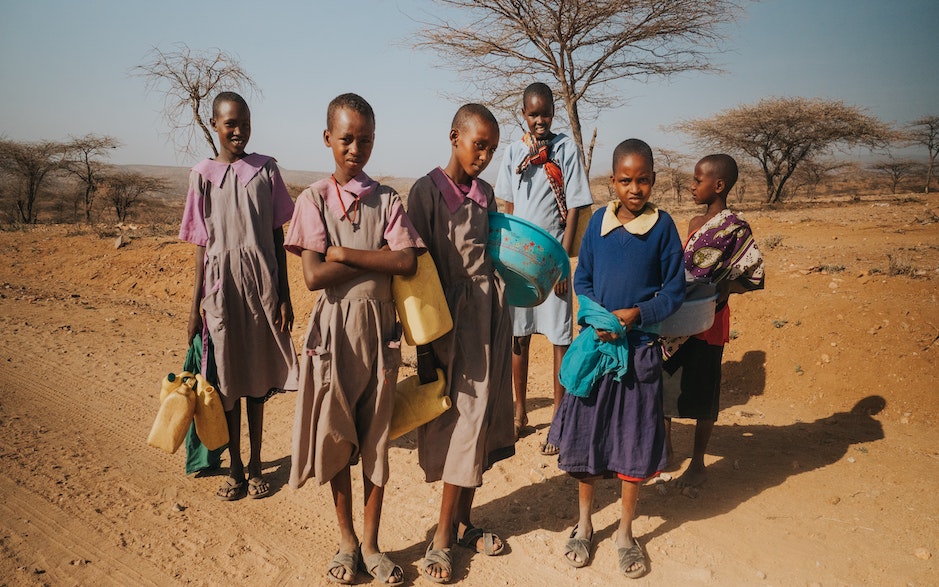Successfully sending volunteers abroad for 10 years
At the end of the second year of my nursing degree, I had four weeks off and I wanted to make the most of this precious time off to learn, experience another culture, to meet new people and most importantly, to work within another country’s healthcare system by being a volunteer abroad. So, I travelled with a close friend and fellow student nurse to undertake a medical volunteering programme in Takoradi, Ghana with Agape Volunteers.
I arrived on a very hot and humid Ghanaian evening to our host father who welcomed us and we quickly set off on our four-hour journey full of nerves, excitement, and exhaustion. It was past midnight when we arrived in a village called Effia that was to be my home for four weeks. There were no street lights and only a few dimmed lights from homes lit up the paths around the village.
The next morning I was introduced to the rest of the host family; they had two young girls who were very chatty and welcoming. In the days that followed, I became familiar with the village, currency and all the new people I met. My host family had a well-built stone home with electricity and toilets. There was, however, as in the vast majority of Effia, no running water. This did not faze me as I quickly got used to showering from a bucket and filling the toilet for it to flush.
I started work at Kwesimintsim hospital, a small hospital not too far from the village, and was kitted up in an all-white uniform of a sewn up dress, hat, apron, socks and shoes. I was to work in each department of the hospital: accident and emergency, gynaecology, the labour ward and the dressings clinic.
On my very first day on accident and emergency, the first thing I saw was a midwife holding a newborn baby. The baby wasn’t breathing and had to be carried across the hospital as the only oxygen canister was in A&E. There were no curtains on the ward so all of the patients could see the midwife trying to revive the newborn baby. It was emotional: as I am training to be an adult nurse, seeing babies is not overly familiar to me and I’ve never been in a situation of such emergency. Thankfully, the wonderful midwife got the baby breathing.
The general routine on all the wards were doctors’ rounds in the morning, drug rounds and taking observations. Most of the patients were suffering from malaria and being treated with IV drugs and fluids, which generally worked well within a few days.
However, I found it stifling that none of the patients' beds had mosquito nets around them for protection from further bites. There was a different approach to care in this hospital than the method I'd experienced in the UK. Whereas as students, we are taught about the importance of the individualised holistic care for every patient, the healthcare professionals in Ghana seemed to focus more on a medical approach; fixing the problem and moving on. I witnessed doctors diagnosing patients with malaria and prescribing the treatment without a physical examination or taking blood tests and waiting for the results. It was so different from how patients are diagnosed in the UK - here the medical teams were getting the most out of the limited resources and staffing they had.
Kwesimintsim hospital didn’t have running water, making good hand hygiene difficult. Huge buckets of water, washing up liquid and tea towels were our equipment. Even though this wasn’t ideal, many of the nurses, especially those in the dressings clinic, used what they had and still ensured that they washed their hands.
Along with the labour ward, the dressings clinic was the busiest place in the hospital. Leg ulcers, burns, knife wounds, bites and wounds from car accidents were all common. There were many similarities in care to the UK - good hand-washing techniques, maintaining sterile environments and preventing infection through wearing protective gear.
One difference was that Kwesimintsim only had one type of dressing available to them - gauze. This was sometimes used with iodine or antibiotic powders, but it had to suffice for all the different types of wounds at different stages of healing. The nurses in the wound clinic were the most hardworking people I met in the hospital and I have no doubt that they would deliver even better care with more resources to hand.
The labour ward was a room full of beds with expectant mothers. It had only the one delivery room, so mums-to-be in the last stage of labour would be walked into the room for the delivery of their baby. I loved being on that ward. I learned so much about labour, contractions, cervix dilation, how to take observations of the mother and the baby in the womb and how to catch a baby. I felt it all very important information to know even as a student nurse.
I was lucky enough to witness two births that were completely different.
The first was very quick. No sooner had the mother got onto the delivery bed, she was pushing and the baby’s head was emerging. I was so emotional and in awe of the mum, it was an incredible moment. Fathers and family very rarely attend the birth of babies in the villages of Takoradi, and it made me sad seeing the mum go through it all alone with no support from loved ones. But her little boy was perfect. New mums are encouraged to feed their babies quickly. I was impressed by a talk a general nurse gave to all the new mums educating them on how to feed their babies and why it is so important. I like that all the student nurses in Ghana gain experience on the maternity and children’s ward; it gives them an understanding and basic knowledge of other branches in nursing.
The second birth I witnessed was distressing all-round. The mother did not make it to the delivery room and was crouched on the floor beside the bed in agony. The midwife rushed over and told her to get on the bed, but she couldn’t. At this point, the midwife struck the woman and pushed her onto her back on the floor. I saw the baby’s head and became frozen on the spot. The midwife was clearly unhappy and shouted at the woman whilst delivering the baby onto the floor, who was then whisked away to be cleaned up.
I couldn’t believe what I had seen. I was angry, upset and in shock from how the mother and baby had been treated. I know little of midwifery, but that was unacceptable and dangerous practice. I reported it to the matron who shared my shock. Luckily, the mother and baby were fine, but witnessing such disrespect from a fellow healthcare professional had made me livid.
My experience of Ghana was not just hospital and clinically based. I stayed with a family in a very much underprivileged part of the town. Food was precious, and water even more so, but I met wonderful and generous people with whom I shared great moments with and who I will keep in touch with. Some of the acts of kindness welcomeness and generosity I received from the people of Ghana were overwhelming. The people I met there made my time incredible and unforgettable.
The trip was more than a volunteering experience; it was the most difficult, emotional and amazing journey I have ever had. I hope that it has made me a better nurse and person for experiencing it.
Alison Rose is a student nurse. If you are currently training as a medical student, or are a qualified nurse or doctor, you could support a local healthcare team in Ghana, just like Alison. Contact us on +44 (0)845 519 8469 to find out more or apply now to become a medical volunteer in Africa.
Other Thoughts
We've always got plenty going on, so why not check out some of our other latest news and thoughts? Or perhaps you're ready to gt stuck in yourself? If so, Apply Now to get in touch with one of our specialist trip advisors.

